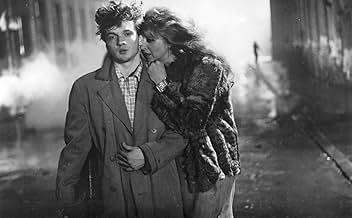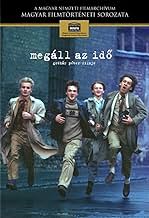IMDb RATING
7.5/10
1.6K
YOUR RATING
A teenager boy has to grow up in the shifting political and moral landscape of post-1956 Hungary.A teenager boy has to grow up in the shifting political and moral landscape of post-1956 Hungary.A teenager boy has to grow up in the shifting political and moral landscape of post-1956 Hungary.
- Awards
- 4 wins & 2 nominations
- Director
- Writers
- All cast & crew
- Production, box office & more at IMDbPro
Storyline
Did you know
- TriviaVoted as one of the "12 Best Hungarian Films" ("New Budapest 12") by Hungarian filmmakers and critics in 2000.
- ConnectionsReferenced in Idö van (1986)
Featured review
In 1982 things were indeed beginning to change in Eastern Europe. Solidarity was founded in Poland in 1980 and began to gather support around the world at the same time that a Polish pope arrived at the Vatican. For the first time, the Soviet Union was hesitant to repress reformists, similar to what it had done in Hungary in 1956 and Czechoslovakia in 1968.
Reformism proliferated throughout Eastern Europe as the Soviet regime weakened. Leonid Brezhnev would die in 1982 and with him, the future of Soviet communism would also die.
This film is part of this reformist phase. A critical view of the repression of the 1956 Hungarian revolution, from the perspective of those who remained. Not because they approved the authoritarian regime, that was established there, but because they did not lose hope of reforming it, and carrying out the revolution, within the system itself.
This hope was transferred to the generation of children of the revolution. This is the essential message of the film. A call to new generations, to look at the example of those who fought and, even when defeated, never stopped believing in the revolution and the construction of a freer and more just society.
Reformism proliferated throughout Eastern Europe as the Soviet regime weakened. Leonid Brezhnev would die in 1982 and with him, the future of Soviet communism would also die.
This film is part of this reformist phase. A critical view of the repression of the 1956 Hungarian revolution, from the perspective of those who remained. Not because they approved the authoritarian regime, that was established there, but because they did not lose hope of reforming it, and carrying out the revolution, within the system itself.
This hope was transferred to the generation of children of the revolution. This is the essential message of the film. A call to new generations, to look at the example of those who fought and, even when defeated, never stopped believing in the revolution and the construction of a freer and more just society.
- ricardojorgeramalho
- Nov 5, 2024
- Permalink
- How long is Time Stands Still?Powered by Alexa
Details
- Release date
- Country of origin
- Languages
- Also known as
- Die Zeit bleibt stehen
- Filming locations
- Production company
- See more company credits at IMDbPro
Contribute to this page
Suggest an edit or add missing content






















